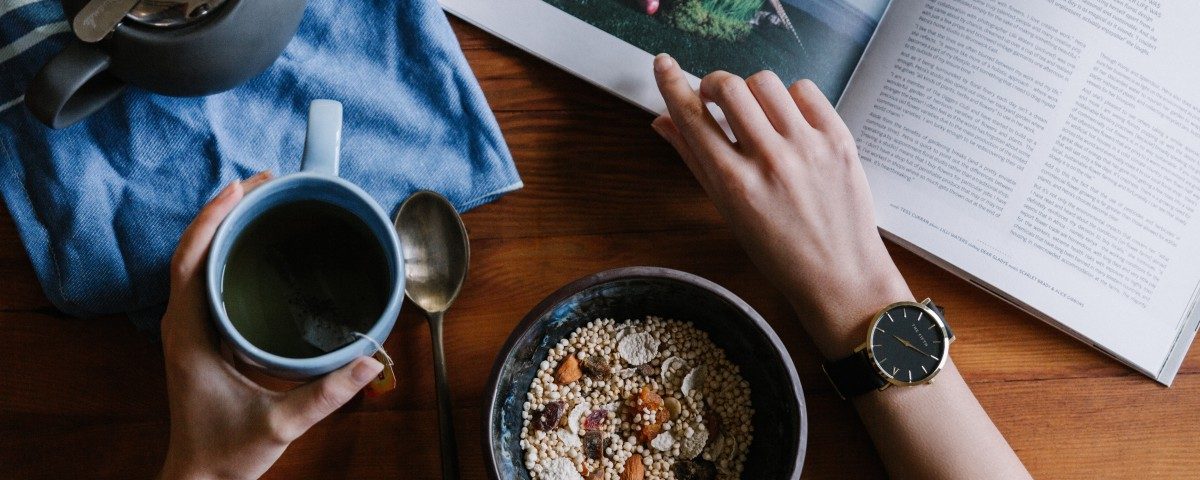To get the most impact and wake up these fat-burning cells, the best time to eat breakfast is within one hour of waking – this is when your body is setting up its metabolism and energy needs for the day!
Skipping breakfast delays fat burning activation and can increase fat generation, explaining one of the mechanisms why breakfast skippers tend to be overweight.
Breakfast Skippers Can Overeat at Dinner
Those who skip breakfast might save their big meal toward the end of the day, but research suggests that consuming a large-calorie dinner could have the same deleterious effects as skipping breakfast, adding a double-whammy to your breakfast skipping day.
One study compared two groups of women with insulin resistance, all starting with very similar baseline measurements (ie BMI, weight, fasting glucose, cholesterol, and insulin levels, etc.) and subjected them to the same amount of calories per day and similar meals for 12 weeks.
The difference was, the “Breakfast Group” had a higher-calorie breakfast and medium-calorie lunch and lower-calorie dinner while the “Dinner Group” had a low-calorie breakfast, medium-calorie lunch, and a higher-calorie dinner9.
End of 12 Weeks
At the end of 12 weeks, the Breakfast Group had quite a lot more improvements than the Dinner Group. The Breakfast Group:
- Lost at least 2.5 times as much weight as the Dinner Group
- Had a greater reduction in BMI and waist circumference
- Cholesterol, fasting glucose, and insulin levels improved more significantly
- The Breakfast Group were less hungry throughout the day, which was also confirmed by measuring ghrelin levels (our “hunger hormone”).
Over the 12 weeks, the Dinner Group had higher levels of ghrelin and more hunger throughout the day, and their triglyceride levels actually worsened.












